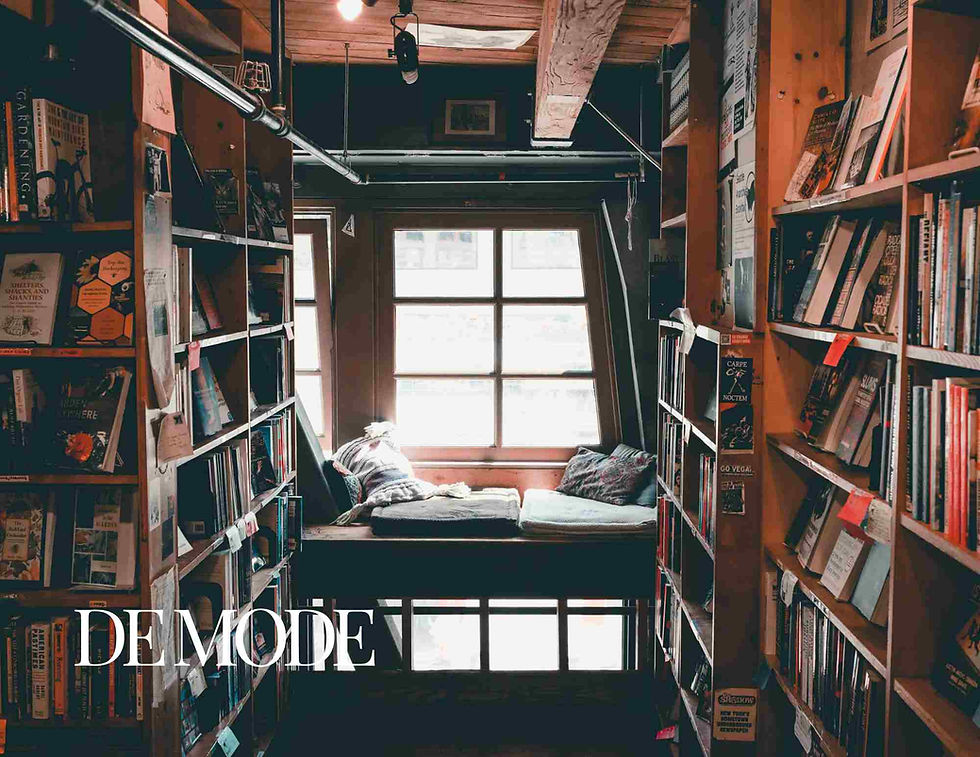ORIGINALLY PUBLISHED IN DE MODE | LITERATURE
Article Published on: 28TH SEP 2024 | www.demodemagazine.com
The influence of philosophy on literary thought is profound and multifaceted, manifesting in various ways throughout the history of literature. Both philosophy and literature are engaged in the exploration of ideas, yet they approach these ideas from different angles. Philosophy seeks to understand the nature of reality, existence, ethics, and human thought through rigorous analysis and logical reasoning. Literature, on the other hand, explores the human experience, emotions, and the complexities of life through storytelling, poetry, and artistic expression. When these two disciplines intersect, the result is often a rich, textured interplay of intellectual exploration and artistic expression. Over centuries, philosophy has provided literature with frameworks for understanding the world, and literature has given philosophy a living embodiment of its abstract ideas.

Ancient Greece: The Philosophical Roots of Western Literature
The intersection of philosophy and literature can be traced back to Ancient Greece, where the foundations of Western literary thought were built on a philosophical understanding of the world. The works of Homer, Hesiod, and other early poets were rich with mythological narratives, yet they also contained kernels of philosophical inquiry about human existence, justice, fate, and the gods.
The Pre-Socratic philosophers, such as Heraclitus and Parmenides, began to move beyond mythological explanations, searching for the principles that governed the universe. This search for truth and reason deeply influenced the subsequent development of Greek drama, particularly in the works of playwrights such as Sophocles, Euripides, and Aeschylus. The themes of hubris, fate, and divine justice in Greek tragedies were philosophical explorations of ethics and morality, predating formal philosophical discourse but engaging with similar questions.
Plato, one of the greatest philosophers of Ancient Greece, explored the relationship between philosophy and literature explicitly. He was famously ambivalent about poetry and drama, criticizing them in his dialogue The Republic for their ability to sway emotions and potentially lead people away from rational thought. Plato argued that poetry appeals to the irrational parts of the soul, making it inferior to philosophical reasoning. However, his Dialogues are themselves highly literary works, employing allegory, myth, and dramatic conversations to explore philosophical ideas. The “Allegory of the Cave” in The Republic is a prime example of how Plato used literary techniques to illustrate complex philosophical ideas about reality and enlightenment.
Aristotle, Plato’s student, took a different view of literature. In his Poetics, Aristotle analyzed tragedy as a form of literature that could fulfill a moral and philosophical function. He introduced the concept of catharsis, the emotional purging that an audience experiences through the representation of suffering in tragedy. For Aristotle, literature could mirror the complexities of human existence and contribute to the cultivation of virtue by helping individuals understand their emotions and moral responsibilities.
Medieval and Renaissance Literature: The Philosophical Influence of Religion and Humanism
In the Middle Ages, philosophy and literature were deeply intertwined with theology, as religious beliefs permeated all aspects of intellectual life. Christian philosophy, particularly as developed by thinkers such as Augustine of Hippo and Thomas Aquinas, shaped much of the literature of the time. Augustine’s Confessions, a deeply introspective and literary work, merges personal narrative with philosophical and theological reflection on the nature of time, memory, and human will. The Divine Comedy by Dante Alighieri is another quintessential example of philosophical literature from this period, blending medieval Christian theology with classical philosophy, particularly the works of Aristotle and Plato.
During the Renaissance, the rediscovery of classical texts and the rise of Humanism significantly influenced literary thought. Humanism, a philosophical movement that emphasized the value and agency of human beings, shifted the focus from divine authority to human experience. Renaissance writers like Michel de Montaigne, whose Essays pioneered a new form of literary self-exploration, were deeply influenced by Humanist philosophy. Montaigne used literature as a medium to explore philosophical questions about human nature, skepticism, and the search for truth. Shakespeare, too, integrated complex philosophical themes into his plays, particularly in Hamlet and King Lear, where questions of existence, morality, and human suffering are central.

The Enlightenment: Rationalism and the Novel
The Enlightenment brought a new philosophical emphasis on reason, empiricism, and the rights of the individual. This era’s philosophers, such as John Locke, David Hume, and Immanuel Kant, sought to understand the world through the power of human reason. These ideas profoundly influenced literary forms, particularly the novel, which emerged as a dominant genre during this period.
Enlightenment writers like Voltaire, Jean-Jacques Rousseau, and Jonathan Swift used literature as a vehicle for philosophical critique. Voltaire’s Candide, for example, is a satirical exploration of the optimistic philosophy of Leibniz, while Rousseau’s Julie, or the New Heloise reflects his ideas about nature, emotion, and the corrupting influence of society. In England, novels like Daniel Defoe’s Robinson Crusoe and Samuel Richardson’s Pamela explored themes of individualism, self-determination, and moral development—concepts deeply rooted in Enlightenment philosophy.
Romanticism: Emotion, Imagination, and the Critique of Reason
In reaction to the Enlightenment’s emphasis on reason and rationality, the Romantic movement of the late 18th and early 19th centuries sought to reclaim emotion, imagination, and the subjective experience as sources of knowledge and truth. The Romantics were influenced by philosophers such as Jean-Jacques Rousseau and Immanuel Kant, who emphasized the role of the individual in constructing their own reality.
Romantic literature, especially in the works of poets like William Wordsworth, Samuel Taylor Coleridge, and Percy Bysshe Shelley, engaged with philosophical themes of nature, the self, and the sublime. Wordsworth’s poetry, for example, often reflects a philosophical meditation on the relationship between the individual and the natural world, exploring the ways in which personal experience and emotional response shape one’s understanding of reality.
German Romantic philosophers like Friedrich Schlegel and Novalis also contributed to literary thought by developing the idea of poetic philosophy, which saw literature as a form of philosophical inquiry in its own right. For the Romantics, literature was not merely a reflection of philosophical ideas but a way of experiencing and understanding the world.
Modernism and Existentialism: The Crisis of Meaning
In the 20th century, philosophical thought became deeply concerned with the crises of meaning, identity, and existence, especially in the wake of the World Wars. Existentialist philosophy, as developed by thinkers like Jean-Paul Sartre, Albert Camus, and Martin Heidegger, had a profound impact on modernist literature. Existentialist themes of alienation, freedom, absurdity, and the search for meaning in an indifferent universe became central to the works of writers like Franz Kafka, Samuel Beckett, and Virginia Woolf.
Kafka’s The Trial and The Metamorphosis, for instance, embody existentialist concerns about the alienation of the individual in a bureaucratic and hostile world. Samuel Beckett’s Waiting for Godot dramatizes the existentialist idea of life’s absurdity, where characters wait endlessly for meaning that never arrives. Virginia Woolf’s Mrs. Dalloway and To the Lighthouse explore the fluidity of time, consciousness, and the fragmented nature of human experience, reflecting philosophical concerns with perception and reality.

Conclusion
The influence of philosophy on literary thought is pervasive and enduring. From the ancient Greeks to modernist and existentialist writers, literature has both drawn from and contributed to philosophical discourse, using narrative, poetry, and drama to explore complex ideas about reality, existence, and human experience. The interplay between these two fields has enriched both, providing literature with depth and intellectual rigor, while philosophy has gained a vivid, emotional dimension through its literary expressions. Together, they continue to shape our understanding of the world and ourselves.